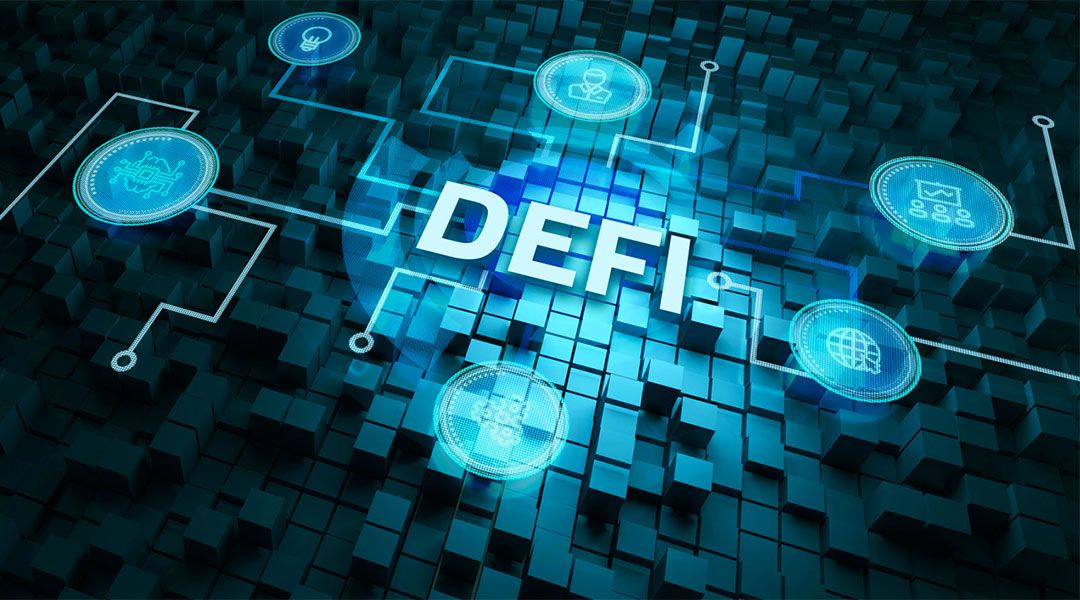Why Tokens Matter and How to Clarify a Path Towards Tokenisation

The organisation of tomorrow, despite differences in industry, location, products and services on offer, will all have one thing in common: they will use some sort of token as the key enabler to their business. Organisations have multiple options when selecting the type of crypto token. The token economics they opt for influences the likelihood of success for the organisation. Tokens are the fuel of the decentralised economy and William Mougayar, the author of The Business Blockchain and Managing Partner and Chief Investment Officer at JM3 Capital, describes a token as:
“A unit of value that an organisation creates to self-govern its business model, and empower its users to interact with its products while facilitating the distribution and sharing of rewards and benefits to all of its stakeholders.”
The usage of tokens in society goes back to antiquity and technologies such as Blockchain can dramatically reduce the cost of secure and trusted token exchange. The potential for tokenisation to disrupt existing interactions is huge – offering more efficient solutions to existing paradigms (e.g. crowdfunding, fractionalised ownership) as well as opening up whole new models for financing and collaboration. One clear example of a use case for tokens is in funding. While crowdfunding has helped democratise funding, far too often worthwhile ventures remain unfunded. Tokens can potentially bridge the gap between organisations in need of funding and investors, who have funds available.
3 Types of Tokens
Although there are over 3000 different tokens, there are three types of tokens: currency tokens, utility tokens, and security tokens.
Currency Tokens
Currency tokens are the most well-known tokens, simply because the first crypto token ever, bitcoin, is a currency token. The value of the token is determined by supply and demand. Contrary to fiat money, which is backed by gold, currency tokens are only backed by the demand and trust in the market. Therefore, a new currency token faces the chicken and egg problem; for a currency token to be used by a lot of people, the currency token needs to have value and high liquidity. However, to have high liquidity and value, there needs to be a lot of users. Therefore, it took bitcoin and ether a lot of time to increase in value.
The more currency tokens there will be, the more difficult it will be to overcome this problem. As a result, in the future, there will only be a few dominant currency tokens. With the problems, Libra is currently experiencing and the opposition of governments and central banks, it is likely that in the future, currency tokens will be predominantly state-created currency tokens such as the crypto Euro, crypto dollar or crypto Renminbi.
Utility Tokens
The second type of token is the utility token. This is a token that is backed by some sort of digital asset. It is a token that has a use case and has not been developed as an investment. Most of today’s blockchain startups aim to develop their token as a utility token. Although these tokens are not designed as an investment, they can still increase in value if the demand for the linked platform or service increases.
A utility token, therefore, offers future access to a product or service and can best be compared to a gift card or loyalty points. An example of a utility token is ether (ETH), which is used on the Ethereum blockchain and allows you to run smart contracts and transactions. A utility token allows you to do things.
Security Tokens
A security token is a token that allows the owner of that token a (future) stake in a company or another asset such as a painting, a car or a building, whether it be in the form of dividends, revenue share, or a price appreciation. It constitutes an investment contract and, hence, attracts the attention of the Security and Exchange Commission (SEC). In November 2018, the SEC sent shockwaves through the crypto community by announcing it had charged two blockchain startups with conducting illegal digital token sales. The two companies, Airfox and Paragon, did not commit fraud, they simply did not register their tokens with the SEC (as is the case for the vast majority of token sales in the years 2015–2018). According to the SEC, most tokens can be considered securities and are, therefore, subject to regulation. Security tokens offer the buyer certain rights and obligations.
Most crypto startups aim to avoid being a security token as it means additional scrutiny by the SEC. However, most crypto startups sell their tokens before they have a product and, therefore, the value of the transaction depends on another’s, future, work. These tokens can be considered an investment contract, which further down the track can be changed to a utility token.
Tokens are the Fuel of Tomorrow’s Economy
Tokens are the fuel for the decentralised economy. Without tokens, decentralised organisations cannot run their platforms and offer their services and products. Tokens will become an important characteristic of the organisation of tomorrow. However, it is vital that the token has a raison d’être as otherwise it can be perceived as a scam or a fraud. Only when there is a real use case for the token, and it adheres to the existing regulation and the laws of token economics, will it have a viable chance to become a success.
However, in many countries, token regulation is still a challenge. Multiple countries are currently developing different regulations. The problem with that is that tokens do not adhere to borders and, therefore, the world would benefit from global, or at the minimum regional (such as European) token regulations. Also, the European Central Bank confirms this as they stated that:
“disjointed regulatory initiatives at the national level could trigger regulatory arbitrage and, ultimately, hamper the resilience of the financial system to crypto-asset market-based shocks”.
What we currently see happening is that small countries tend to have favourable regulations to attract crypto startups, while large countries have more strict regulations, making it more difficult to attract token startups. Some of the various token regulations in the world include:
- France: Token companies have to voluntarily abide by existing regulation to receive approval for doing business.
- Germany: Has very strict regulation that requires token startups to obtain sort of a banking license from the German regulator (BaFin).
- Switzerland: Crypto is not seen as money and are not seen as securities and do not need a license.
- Estonia: Clear regulation of cryptocurrencies, cryptocurrency exchanges and custodian wallet service providers for AML/CFT purposes by adopting the 5AMLD into the national legislation.
- Malta: Clear regulation, utility tokes do not need a license, security tokens do. Although it seems that Malta is losing its title as crypto capital. No licenses have been given since May, and multiple exchanges are leaving the ‘blockchain island’.
- Singapore: a crypto-haven and crypto itself is not regulated in Singapore; however, the activities surrounding it or its characterisation resulting from its activity are what determines whether it will be regulated under securities or other legislation.
- Liechtenstein: The tiny country has recently passed the Blockchain act, which consists of very clear token regulations. As part of these regulations, tokenisation means that any right or asset can be “packaged” into a token according to the Token Container Model. This offers clear guidelines for companies and acknowledges that in the future, the physical will soon be augmented by the digital.
Tokenisation in The Netherlands
Recently, I got involved in the 2Tokens project in The Netherlands, which was launched on November 6, 2019. The 2Tokens project has the objective of gaining insight into how The Netherlands should deal with token financing and tokenisation. Surrounding countries such as Germany and France have already formulated a strategy around tokens and have announced laws and regulations. The Netherlands is well-positioned to play a leading role in the transition to decentralisation, even though the challenges are diverse. Unfortunately, clear legislation is lacking.
The project is funded by the European Regional Development Fund and is a joint effort of BlockLab (Port of Rotterdam), YES!Delft, InnovationQuarter (regional economic development agency for West Holland) and LIFT-OFF who is the project lead. In addition, 2Tokens has received endorsements from the Erasmus University, TechLeap.NL, the Dutch government and several industry players. The objective of the project is to map a clear route for realising value from tokens for The Netherlands BV. This involves looking at challenges with existing legislation and making recommendations for possible changes to the legislation.
“Tokenisation will transform our economic landscape in much the same way that shares and stock markets did in the 17th century. For an Incubator such as YES!Delft it is key that we create the right environment to allow these innovations to happen – so it is great that multiple parties have come together to do what is necessary to realise this potential” says Neil Smyth of YES!Delft, the incubator of TU Delft that recently opened its Digital Hub in The Hague. Aljosja Beije, from BlockLab, agrees and states that “in the port of Rotterdam we work on the digitization of supply chains and we regard tokenisation as a valuable option for logistics and energy value chains.“
The project starts with a series of round table sessions, where the first was about challenges and opportunities for the Netherlands, on November 6 in The Hague. The second will be about Token financing and will take place on November 27, and the third and final round table session will be about the role of tokenisation in new economic ecosystems on January 14.
Final Thoughts
Tokens are programmable, and they offer new opportunities for companies to be more flexible with regard to ownership, voting rights, dividends and financing. This will drastically affect the core of what a legal entity is and will have a profound effect on liquidity in the world’s economy. However, clear regulation is required, and since tokens do not adhere to borders, those countries (or even better regions) can attract a lot of investments and companies by having favourable regulations.
Favourable does not have to mean becoming a tax haven. It means having clear and easy to understand/adhere to regulation as well as having a token-friendly environment (meaning it is, for example, easy to open a bank account as a token company).
There is still a very long way to go, simply because regulations take time. However, regulators should also see that tokens are here to stay, and tokenomics will fundamentally change the world’s economy.
Image: Fullvector/Shutterstock





